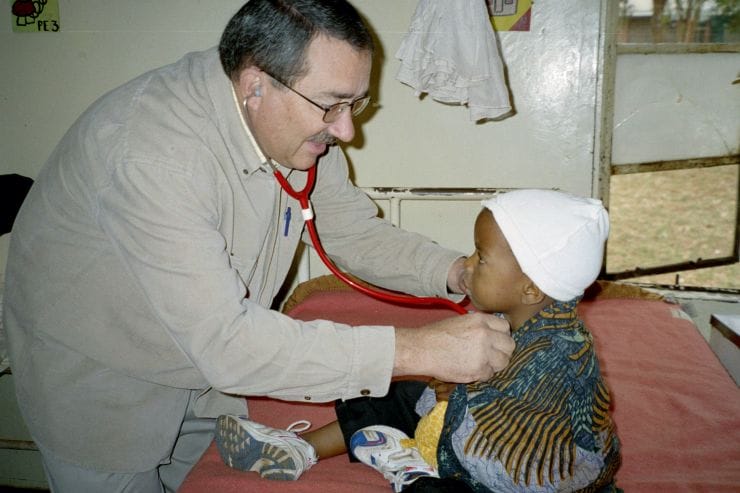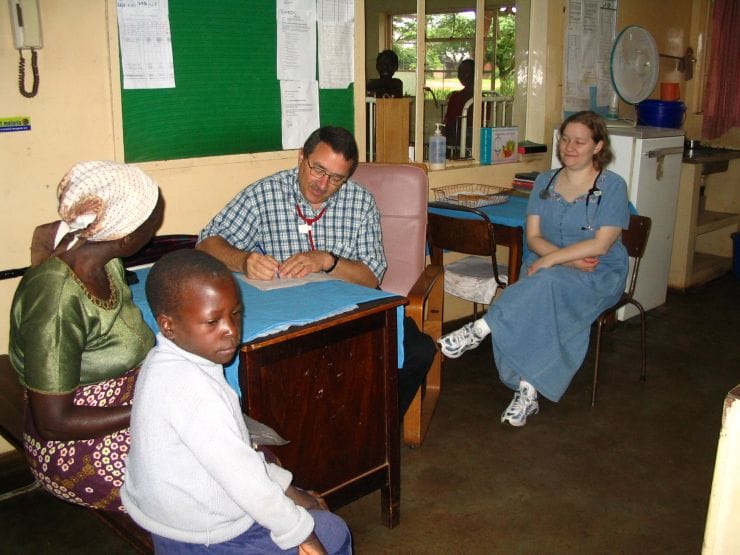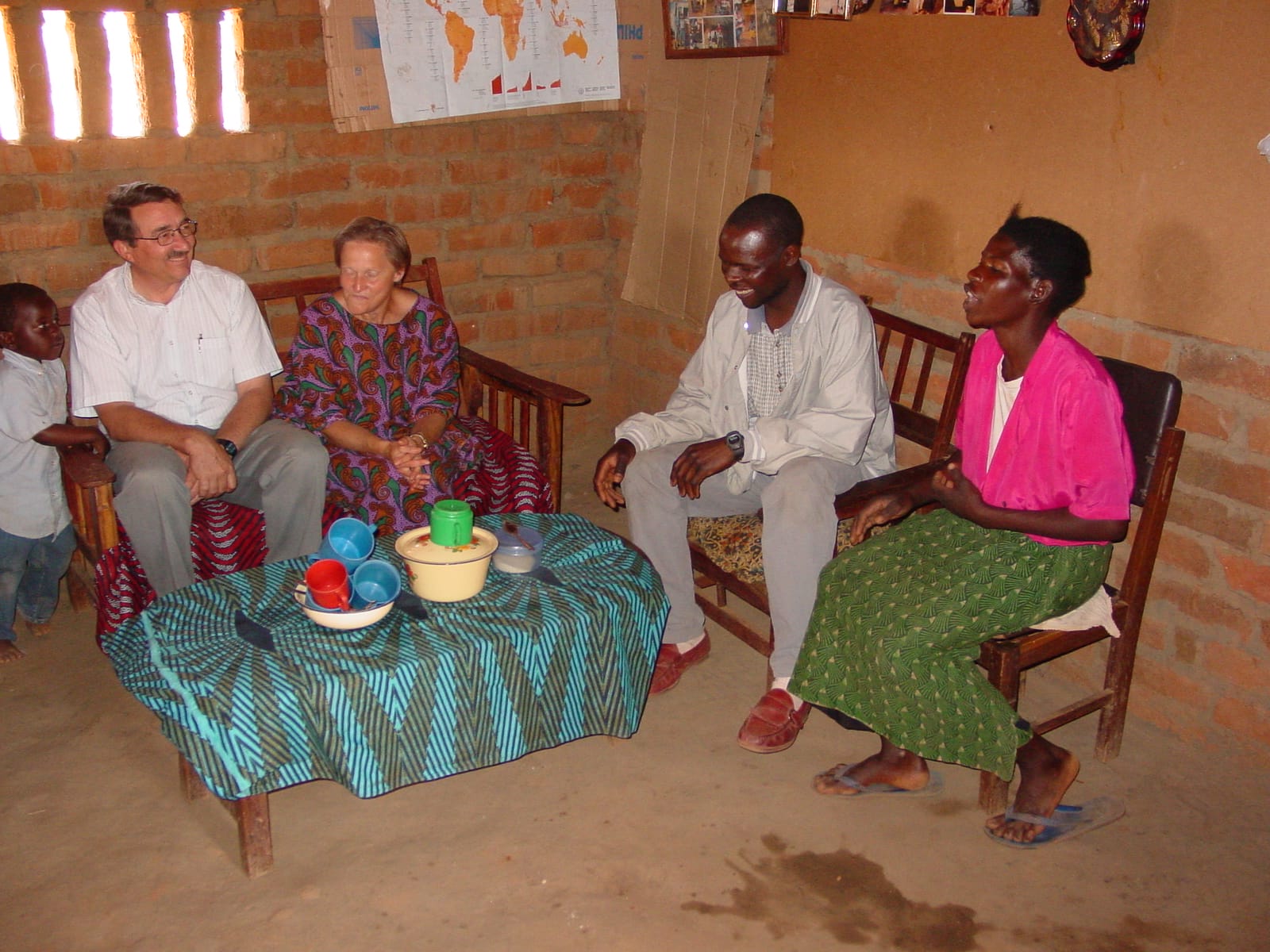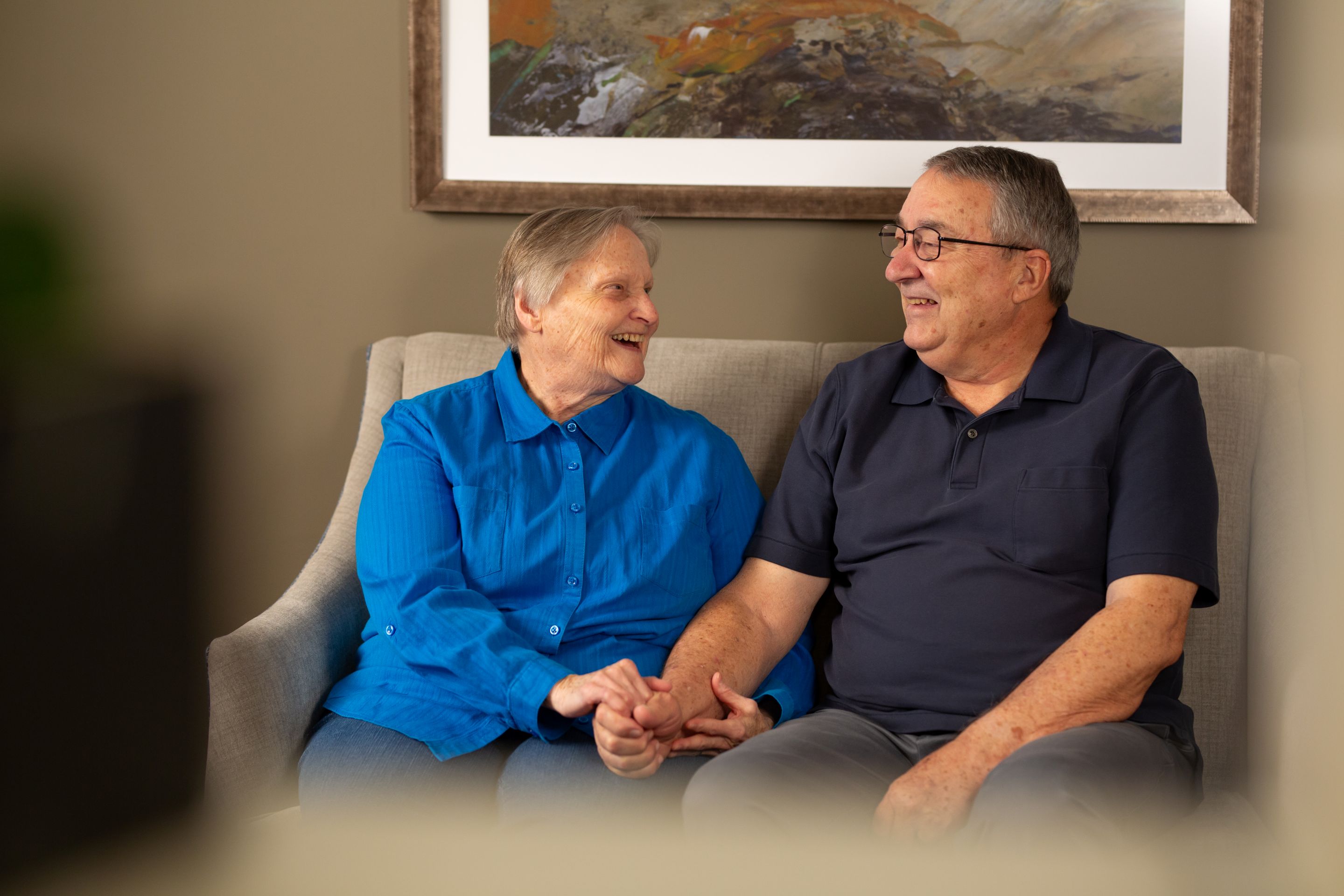Having grown up Zambia, Africa, the son of a missionary physician, Phil Thuma never imagined following in his father’s footsteps. But the Lord had other plans for his life—plans that led him back to where he grew up and eradicated deadly disease.
For 15 years of his childhood, Zambia was home. He spent just one full year in the U.S. before graduating high school at 16 and heading to Messiah College (now University) to study chemistry.
After earning his undergraduate degree in 1970, Phil was accepted into the biochemistry PhD program at Purdue University. But at the last minute—guided by a gut instinct he can only describe as a whisper from the Holy Spirit—he applied to medical school at Temple University and was accepted.
“I didn’t know what impact this sudden change of heart would have,” Phil said. “But I trusted that there was a reason.” While pursuing his M.D., life moved swiftly.
Phil married Elaine—a longtime friend of his cousins—and they welcomed their first child, Jennifer, during his internship year. Then came an unexpected offer from the Brethren in Christ (BIC) Mission: A chance to return to Zambia.
They talked it over, but the answer had been in their hearts all along. And so, they went.
“God changed both of our hearts in those two years,” Phil said of himself and Elaine, neither of whom had planned to stay for 20 years like his parents. “I often say God put the children of Africa on my heart.”
 During these two years of voluntary service, Phil spent countless hours caring for locals and digging into data at Macha Mission Hospital, a 208-bed acute care hospital that his father helped build in the ’50s. The data highlighted a devastating truth: Children were the hardest hit by disease and death. Half wouldn’t live to see their 12th birthday, most often succumbing to infectious diseases, malnutrition, or malaria.
During these two years of voluntary service, Phil spent countless hours caring for locals and digging into data at Macha Mission Hospital, a 208-bed acute care hospital that his father helped build in the ’50s. The data highlighted a devastating truth: Children were the hardest hit by disease and death. Half wouldn’t live to see their 12th birthday, most often succumbing to infectious diseases, malnutrition, or malaria.
When the two years ended, the Thumas knew they’d return, and they did, when Phil completed the Johns Hopkins Medicine Pediatric Residency Program.
“By the late ’80s, malaria became the number one cause of admission to the hospital and death in Zambia,” Phil said. “I realized that if I feel a calling to try to help the children of rural Africa—where we lived and worked—and malaria was now the number one cause of morbidity and mortality, I need to do something about it.”
THE PATH TO ERADICATING MALERIA
A In 1990, the Thumas came to the States again for their three kids to attend high school, a requirement for BIC missionary families at the time, but Phil’s work in Zambia didn’t stop. By day, he worked at Hershey Medical Center; by night, he was in his Dillsburg basement, writing grants to secure funding.
 Phil secured grants to lead a study at Macha Hospital on a newly developed malaria drug, as well as additional funding from the World Health Organization (WHO) to further investigate the findings. Seeing breakthroughs on the horizon, he soon left his daytime position to fully dedicate himself to founding, funding, and running his own nonprofit, Macha Malaria Research Institute (now Macha Research Trust).
Phil secured grants to lead a study at Macha Hospital on a newly developed malaria drug, as well as additional funding from the World Health Organization (WHO) to further investigate the findings. Seeing breakthroughs on the horizon, he soon left his daytime position to fully dedicate himself to founding, funding, and running his own nonprofit, Macha Malaria Research Institute (now Macha Research Trust).
In the late ’90s, WHO approved this drug for global use, and Zambia became the first country to implement it.
“It’s amazing how well this new drug worked,” he said, as malaria cases drastically decreased by approximately 98%.
The infectious disease he spent dozens of years studying, researching, and fighting against, in collaboration with the Johns Hopkins School of Public Health, was successfully eliminated in the Macha area.
“Now, the community around Macha has a whole generation of people who have never been affected by these symptoms,” Phil said. “There used to be more than 100 kids dying a year from malaria at Macha Hospital, and there have been zero the last four years.”
A LEGACY OF LOVE
Phil had always planned to retire at age 70, so during his final years in Zambia, he recruited and trained successors who would lead nearly 80 employees with the same selfless compassion he had when it was just a nonprofit of one, run from a basement. Today, the Macha Research Trust studies everything from influenza to HIV.
 They once thought they would retire and spend the rest of their days in Zambia. But in 2015, Elaine developed severe muscle weakness—later diagnosed as a mitochondrial myopathy—making it increasingly difficult to navigate the village’s dirt paths in her now-necessary wheelchair.
They once thought they would retire and spend the rest of their days in Zambia. But in 2015, Elaine developed severe muscle weakness—later diagnosed as a mitochondrial myopathy—making it increasingly difficult to navigate the village’s dirt paths in her now-necessary wheelchair.
That two-year mission trip in the 1970s turned into 20+ years, and in 2020, they relocated back to the U.S. permanently.
“When we left in 2020, there were 14 different projects in which I was either the principal investigator (PI) or co-PI,” said Phil, who has since traveled back to Zambia a handful of times to attend annual Board meetings. “There still isn’t a week that goes by when I don’t receive at least one email with a research related question.”
They moved to Messiah Village in 2023, grateful for the security that the continuum of care provides. Moving out of their Dillsburg home was a walk down memory lane for Phil as he cleared out the basement, sorting through boxes of lifelong research—research he now shares with Pathways Institute for Lifelong Learning participants in his course, “The History of Malaria.”
You can see bits of their memories smattered around their Messiah Village apartment. Metal mosquitoes hanging from the pendant lights above their kitchen island, and a tapestry that once hung in their house in Zambia now hangs on their bedroom wall.
Nestled in their bookshelf is a Macha Malaria Research Institute sign—a simple reminder of a life dedicated to service and a community forever changed.
“I share my experiences not to bring any glory to what I’ve done,” Phil said. “But I think the Holy Spirit uses stories to encourage other people—to plant a seed. To change hearts.”
Click here to read the full, digital version of Spring 2025 Unscripted Magazine.





